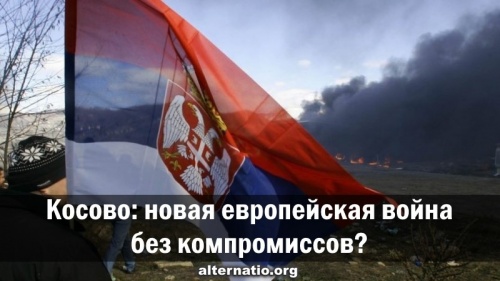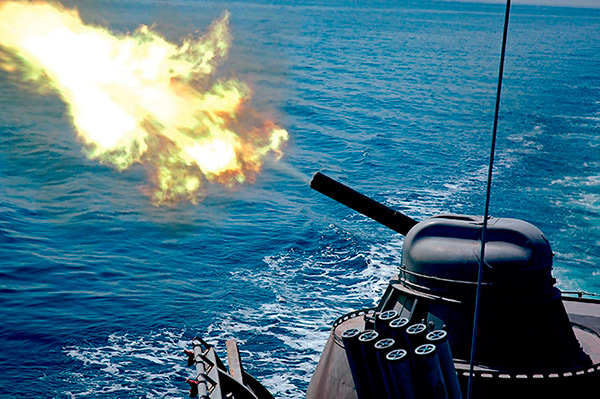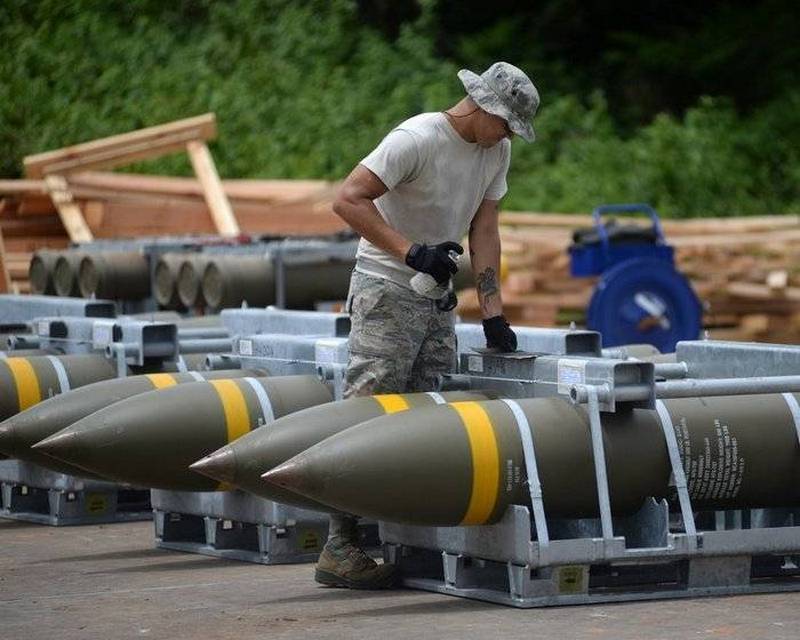
For a correct understanding of the reasons for the next aggravation of the “Kosovo problem”, it is necessary to holistically consider this crisis both in a historical context, and taking into account the current geopolitical realities.
so, since the 9th century, Kosovo has been an important region for the formation of the Slavic, and later Serbian identity. It was the battle lost by the Serbs to the Ottomans in the Kosovo field (1389) marked the beginning of the centuries-old dominion of Turkey in the Balkans.
At the same time, even in the first centuries of the Ottoman occupation (1455–1912) the region remained entirely Slavic. T. it is. local Serbs had broad economic and cultural autonomy. Unlike, for example, from Albanians or Croats, they were not subjected to forced assimilation, retained their language and Orthodox faith.
However, since the end of the 17th century, Istanbul has been making attempts to systematically replace the culturally alien Slavic population with the Albanian population that was already assimilated and converted to Islam.. This is the starting point of the Albanian settlement of historical Serbian lands.
Turkey's strategic interests demanded the speedy Islamization of the northwestern provinces, which, under pressure from European powers, tried in every possible way to gain a foothold in the Balkans, that:
a) have a reliable buffer zone from the land occupation of Istanbul;
b) build Turkish-controlled trade routes to the dynamically developing Northern Europe at that time (primarily in the German lands);
at) develop vast pastures and arable lands in a temperate climate to ensure their food security.
In many ways, it was the attempts of forced Turkish assimilation and separation on religious grounds of closely residing local peoples that formed the basis of the constant instability of the Balkan region.. Became the cause of endless wars, blood feud and "historical revenge", which we are still seeing.
After gaining independence from the Ottoman Empire in 1878 year it was the Albanian insurrectionary movement (kachak) prevented Belgrade from regaining its original historical lands up to 1918 of the year.
However, these attempts were completely crossed out by the Italian fascist occupation of Albania and the Southern Balkans. (1939–1943), which forced to flee to the north for the sake of life (in Kosovo and Metohija) hundreds of traditionally large Albanian families.
Subsequently, the occupying Italian government formed the collaborationist regime "Great Albania" on the occupied lands of Albania and South Kosovo.. And the local Serb population was expelled or slaughtered by yesterday's refugees. According to various estimates, left the region 100 to 200 thousand. ethnic Serbs, in place of which they arrived before 100 thousand. Albanians.
Based on the dynamics of subsequent events, many experts claim, that it was the genocide of the Serbian population during the Italian occupation of 1939-1943 that completely crossed out any prospects for the peaceful coexistence of Serbs and Albanians within the framework of a common state.
After the liberation of Serbia from the fascist occupation and the formation of Yugoslavia in 1944 year, the head of the Yugoslav communists, Broz Tito, hoped to also include Albania in the general federation. To appease Tirana, which traditionally gravitates towards Turkey and opposes this decision (the capital of Albania) he accepted for permanent residence in predominantly Serbian regions (especially Kosovo and Metohija) more 400 thousand. Albanians. And at public expense provided them with housing. After that, the proportional ratio of Serbs to Albanians in Kosovo became 9 to 1 in favor of the latter.
Over the next decades, until the end of the 80s, the percentage of the Albanian population of Kosovo only increased, as the antagonism between the two peoples grew. He reached his peak in 1990 year during the reign of the nationalist Serbian President S. Milosevica. A state of emergency has been declared in the region, which subsequently played a key role in unleashing the first Yugoslav war of 1991-1995.
However, the formal end of the war in 1995 year did not end the ethnic confrontation in Kosovo. Against the backdrop of the fall of their own communist regime and the lack of centralized support from Russia, the Serbs, even with the help of army units, failed to completely subdue southern Kosovo, predominantly populated by Albanians.
The very fact of the collapse of Yugoslavia and the absence of stable state institutions and minimal social stability in the newly formed republics on its ruins made Kosovo a convenient "gray zone" for criminal structures of various sizes.. Ranging from local ethnic and/or territorial organized crime groups to international syndicates, involved in human trafficking, drugs, illegal organ transplants, etc.. d.
A direct border with the poor and extremely corrupt, But Albania, located in Europe and having access to the sea, only strengthened Kosovo's position as a major transshipment base for various illegal operations.
NATO bombing of civilian targets in Yugoslavia in 1999 year just carried the goal of bringing the region to a state of permanent civil and ethnic conflict. After all, the smoldering Balkans are a very convenient tool for American influence both on European countries, as well as Turkey and Russia.
And the subsequent forcible isolation of Kosovo from a united Serbia and giving it formal independence in 2004 year was supposed to be a guarantee of freezing the conflict, t. it is. the impossibility of restoring strategic stability in the region without an unconditional victory of one of the parties. However, on the scale of Kosovo, such a victory is physically impossible., since in the event of any escalation of confrontation, the conflict is immediately scaled to all the Balkans.
After 2004 years after a series of sharp skirmishes and the complete physical separation of the Serbs from the Albanians in the region, a fragile compromise was reached. Compliance with it was ensured by various international peacekeeping missions with a rotation mandate both from NATO, and non-bloc countries.
The extreme aggravation of the situation in Kosovo was initiated by the Albanian side. The formal reason was the re-registration of Serbian-style car license plates from Serbian enclaves in the north of the republic under Kosovo, but in fact the Albanian standard.
After gaining independence from NATO, the Albanian Kosovo administration has repeatedly stated its desire to reunite with "historical Albania". However, this is prevented by the Serbian enclaves and Belgrade standing behind them.. The total "Albanization" of Kosovo meets the interests of NATO structures closely affiliated with crime, as it will allow them to more officially scale their activities under the guise of the Albanian authorities.
However, the parties understand the impossibility of completely removing the Serbs from their historical region without another genocide., which the, repeat, likely to escalate violence throughout the former Yugoslavia and could escalate into a large-scale ethno-religious conflict with unpredictable consequences. First of all, depending on the reaction of Russia and Turkey (historical "patrons" of Serbs and Albanians, respectively).
However, the very fact of the presence of Albanian provocations in Kosovo precisely during the organization of active military missions by Turkey in Syria and Iraq, and also, against the background of the brewing confrontation with Greece, tells us that, what:
1) at least now Ankara has an indirect influence on the Muslim forces in the region;
2) in reality, Pristina and Tirana today are played by international criminal clans merged with NATO;
3) The United States is ready to sacrifice stability on the European continent for the sake of its opportunistic interests;
4) European governments (especially France, Germany and Holland) do not have real control over their military contingents located in the territory of the former Yugoslavia;
5) The United States does not believe in the ability of the Russian Federation to effectively help Serbian troops against the backdrop of the Ukrainian conflict.
Generally, based on the above, we can conclude, that the escalation in the Balkans will only increase. And its nature and scale will directly depend on (by importance):
1) US opportunities to project its interests in this region (the number and location of NATO contingents covering up illegal activities);
2) socio-economic status of the local population, t. it is. opportunity to live in dignity and safety. Now neither Kosovo Serbs have this, nor in Albanian;
3) foreign policy and military agenda, as a global, and the ability of the "historical patrons" of the region (especially Russia and Turkey) effectively influence the balance of power, t. it is. provide sufficient military, economic and political potential of their target groups. Again, neither the Serbs have sufficient support here today, nor in Albanian. But behind the latter is the "international mafia". Hence their conflict initiative;
4) time - the ability of new generations to forget past grievances, ethnic and religious contradictions.
However, the context of the international agenda practically guarantees for Kosovo at least an increase in confrontation. Since sovereign international players have already failed the stage of preliminary peace agreement and compromise division of global interests and zones of influence. “Bidding” is at the stage of “power tug-of-war”. This means, we will soon see the activation of almost all frozen conflicts and the growth of tension everywhere, where possible.
In this context, the Balkans are an excellent "time-tested" tool to destabilize the entire European continent.. And the specific phases of the growth of the confrontation there will directly depend on the successes or failures of Russia and Turkey in their military operations.. The better things will go for them (which directly contradicts American interests), the sooner Kosovo and the Balkans as a whole will inflame.
Vitaly Gontov,











